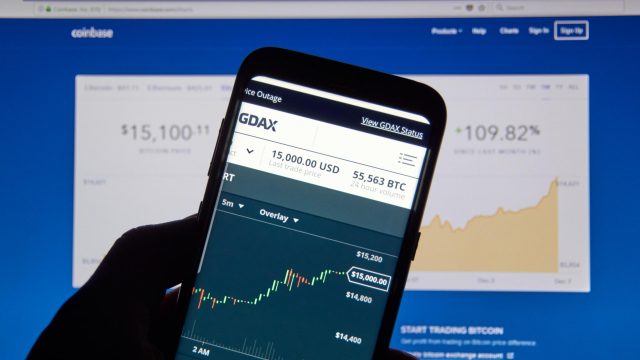
Coinbase’s Ethereum (ETH) Wallets Will Finally Support ERC-20 Tokens

One of the largest cryptocurrency brokers worldwide, Coinbase, announces ERC-20 tokens support throughout their integrated Ethereum (ETH) wallets. A feature many believe it was mandatory to have since day 0 of the introduction of the Ethereum protocol.
According to the official announcement delivered on March 26, via Coinbase’s Medium account, the California-based company is planning to introduce tokens underlying behind the Ethereum ERC-20 technical standard in the coming months.
Though Coinbase was not specific if any ERC-20 token could be implemented into their platform via the Ethereum (ETH) wallets found pre-installed in each user’s account, or there will be a selective group of specific ERC-20 tokens that would be allowed into the digital platform, we can be pretty sure that this is one of these “marketing tricks” where community members will be highly affected by the news, generating exciting concepts about their favorite coin being supported by Coinbase in the near future, without any legitimate basis.
ERC-20 is an Ethereum token technical standard used for smart contracts on the Ethereum blockchain. Developed in 2015, ERC-20 defines a common list of rules that an Ethereum-based token has to implement, giving developers the ability to program how new tokens will function within the Ethereum ecosystem. This token protocol became popular with crowdfunding companies working on initial coin offering (ICO) cases.
For example, many altcoins and other blockchain-based projects like Waltonchain (WTC), OmiseGO (OMG), EOS, Tron (TRX), VeChain (VEN), and even Binance‘s native currency BNB among literally tens of hundreds of other tokens are using Ethereum’s network to operate.
Smart contracts allow these individual token systems to adopt an area of blocks inside the Ethereum network and use it strictly under their own newly developed rules that may be completely different than those of Ethereum.
If we could look at the whole Ethereum chain as a whole it would be #1 according to CoinMarketCap‘s list based on market capitalization, due to the fact that almost half of the altcoins and other blockchain-based projects are literally leeching from Ethereum in order to exist.
If you ever tried to send or receive any ERC-20 token you would notice that their wallet addresses start with 0x, which is Ethereum’s initial characters for a standard Ethereum wallet. In order to use an ERC-20 token, you had to possess an ERC-20 compatible wallet like Metamask or similar digital or physical wallets with ERC-20 support.
Coinbase, while had implement Ethereum (ETH) itself since its very beginning, it never supported ERC-20 tokens up until now. Meaning that if you ever tried to send your TRX to your Coinbase’s Ethereum wallet, you’d probably lose these coins forever, or you would have to participate in a very long and painful process that in the end could possibly leave your problem unsolved.
Coinbase states that their wallet provider Toshi, recently added ERC-20 token support, therefore we should naturally see the same on Coinbase in the near future.

At the same time, as prementioned, we cannot yet be sure if all ERC-20 tokens will be available for storage in a Coinbase Ethereum wallet until the official date of the technical update.
Coinbase also says that previously “lost” ERC-20 tokens sent to Coinbase Ethereum wallets could possibly be able to retrieve after the update, putting big smiles on many customers who might have tried the transfer of an ERC-20 token to their Coinbase wallets, without being sure about whether it would work or not.
Finally, regarding GDAX, Coinbase’s own cryptocurrency exchange market, the official report states that “the GDAX team will wait for additional regulatory clarity before we decide which ERC20 assets to support on GDAX.”
What would be your favorite ERC-20 token that you would also like to see being supported by Coinbase’s Ethereum wallet? Let me know in the comments below. My favorites would include WTC, KIN, ICN, WPR, INS among tons more that are not necessarily listed as ERC-20 tokens but use their own networks like IOTA, and XRP for example.
Reporting for The Independent Republic, Ross Peili